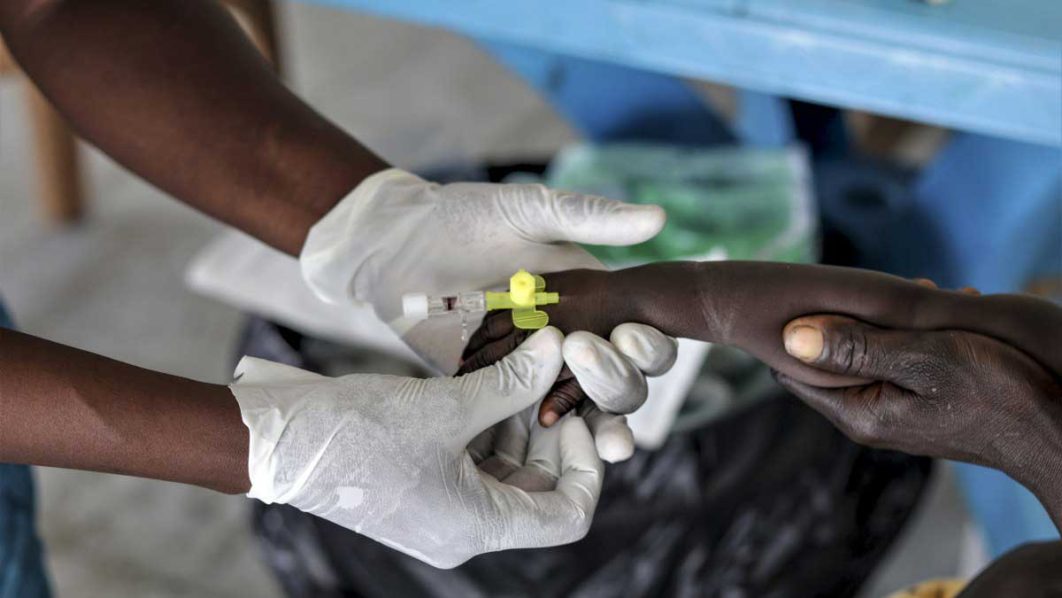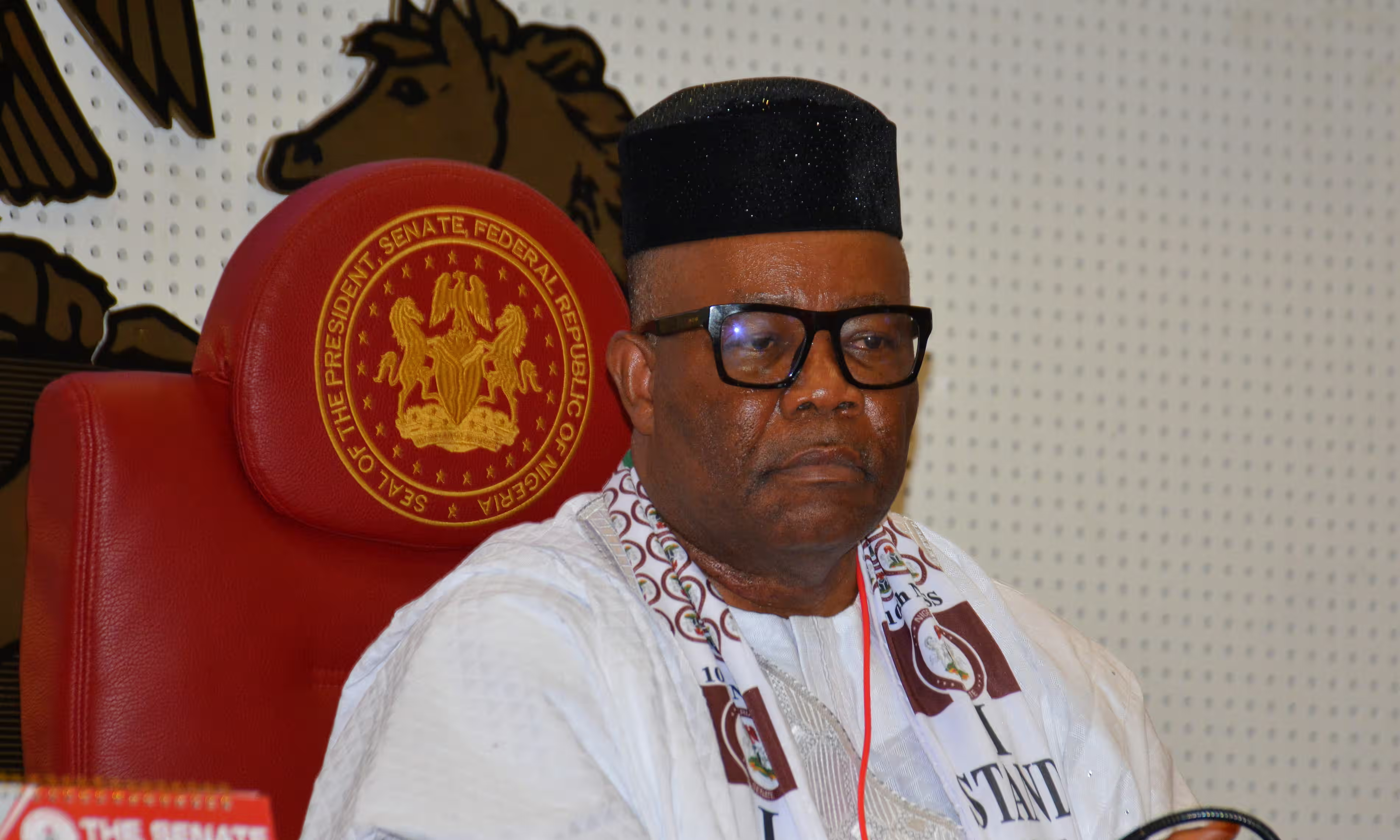
•165 million Nigerians need at least one care or the other
• FG accused of ignoring NTD-affected communities in critical programme planning
• 3,000 without multi-drug therapy as bureaucracy delays leprosy treatment
• Eliminating tropical disease by 2030 will earn Nigeria $19b in productivity
• NTD’s national coordinator reels out FG’s achievements in combating diseases
• Oyediran: Why tackling 15 out of 21 NTDs makes Nigeria’s case challenging
Despite the Federal Government’s ambitious plan for the Neglected Tropical Diseases (NTD) and promises to eradicate the plague by 2030, progress is stalling in the face of bureaucratic hurdles, inadequate engagement with affected communities, and a care funding gap in excess of N8.6 trillion, according to estimates from the World Health Organisation (WHO).
The WHO highlighted that N8.6 trillion is required to combat NTDs in Nigeria alone. It estimates that 165 million Nigerians—representing 84 per cent of the population—need preventive chemotherapy for at least one NTD.
While the authorities tout successes in reducing prevalence and rolling out interventions, analysts and stakeholders admit that if the scourge must be wiped out, local and global players must bolster their approach or risk leaving millions vulnerable to diseases that perpetuate poverty and stigma.
NTDs are a group of communicable and non-communicable diseases that primarily affect the rural poor and disadvantaged urban populations. These vulnerable groups often lack access to safe water, adequate sanitation and housing. Most significantly, poverty remains the underlying factor driving the prevalence of NTDs.
Some of the most common NTDs in Nigeria include lymphatic filariasis, onchocerciasis, schistosomiasis, soil-transmitted helminths, and trachoma. These are managed through preventive chemotherapy, primarily involving the mass administration of medicines.
Other NTDs addressed by the Federal Ministry of Health through case management include snakebite envenoming, leprosy, Buruli ulcer, human African trypanosomiasis (HAT), Guinea worm disease (GWD), lymphoedema, rabies, leishmaniasis, and noma. Also, the ministry tackles mental health disorders and the stigma associated with NTDs.
Commemorating the World Neglected Tropical Diseases Day 2025, today, the World Health Organisation (WHO) called on global leaders and communities to unite in the fight against neglected tropical diseases, urging bold and sustainable investments to free an estimated 1.5 billion people in the world’s most vulnerable communities from the cycle of disease and poverty.
The plight of Nigerians living with NTDs has been brought to the fore as the National President of Integration Dignity and Economic Advancement (IDEA-Nigeria), Peter Iorkighir Terver, accused the Federal Government of excluding affected people from programme planning and implementation.
Terver, representing IDEA-Nigeria, an association of individuals affected by leprosy, lamented the continued suffering of those living with NTDs, alleging that transmission remains unchecked. He emphasised that achieving the goal of eliminating these diseases would be impossible without proper measures in place.
In an interview with The Guardian, he criticised the government’s efforts on NTDs, describing them as ineffective and asserting that the target to eliminate the diseases in Nigeria by 2030 was unrealistic.
“When planning for someone, it is essential to hear from them. How else will you know what affects them?” Terver said. “These people (the government) design programmes based on assumptions, imagining it will have the best impact. But if they continue this way, as they are saying, by 2030, it will just be talk. We cannot eliminate anything.”
He criticised the lack of engagement, saying, “The government does not seem to know what it is doing. On our part, we are in the dark unless we watch television to learn about some of their activities. Are we not supposed to be the ones informing others about the work our government is doing to help us? That is not happening. We are not feeling the impact; we do not even know some of the people involved in this so-called work.”
Furthermore, Terver raised the alarm over a year-long shortage of Multi-Drug Therapy (MDT) medications used for the treatment of leprosy in Nigeria, leaving over 3,000 diagnosed individuals, including 800 children, without treatment.
“These delays are not just administrative failures; they are a human rights violation. Bureaucratic bottlenecks, such as additional National Agency for Food and Drug Administration and Control (NAFDAC) requirements and permit expirations, continue to block the supply of life-saving medicines. Despite our repeated appeals, no action has been taken.
“This neglect is reversing Nigeria’s progress in leprosy elimination, increasing disease transmission, and pushing affected individuals further into stigma and suffering,” he said.
Terver called on the Federal Government to urgently remove regulatory barriers preventing the supply of MDT, stressing that uninterrupted access to the medication is crucial to prevent further disabilities and suffering.
Similarly, the Tuberculosis, Leprosy, and Buruli Ulcer Supervisor in Anambra State and National Coordinator of the IMPACT Group, Mrs Amaka Onyima-Esmai, raised concerns over the unavailability of MDT medications for leprosy treatment in Nigeria for more than a year.
Speaking on the plight of persons affected by NTDs, Onyima-Esmai lamented the absence of MDT drugs, emphasising the risk of disabilities among untreated patients.
“In my office, I have diagnosed people with leprosy, but there are no drugs for their treatment. This has persisted for over a year, posing a serious danger to the country. Early diagnosis and treatment prevent disabilities, but without drugs, patients deteriorate daily,” she said.
She criticised the government’s failure to involve affected individuals in programme planning, calling for immediate resolution of issues surrounding drug shortages. Onyima-Esmai also advocated free access to other NTD medications, highlighting the financial burden on indigent patients.
For instance, she noted that managing lymphatic filariasis requires costly wound-dressing materials and routine drugs, which are unavailable for free. “Dressing a wound four times, a week may cost about N12,000, which is beyond the reach of most patients. Without proper care, they are forced to rely on inadequate and unhygienic alternatives,” she explained.
Also, in an interview with The Guardian, the United Nations Children’s Fund (UNICEF) Chief of Water, Sanitation, and Hygiene (WASH), Jane Bevan, observed that while progress has been made, particularly in the mass administration of medicines, there is a pressing need for greater commitment to providing WASH services. She also highlighted that NTDs are strongly linked to poor housing conditions and insufficient WASH infrastructure.
Bevan stressed that prioritising WASH interventions—especially ending open defecation and promoting improved hygiene practices—could prevent future infections and sustain the progress in reducing NTDs. She added that the missing link is a comprehensive approach that robustly integrates WASH services with preventive chemotherapy.
Bevan expressed concern that two out of every three Nigerians are either infected with or at risk of one or more NTDs, noting that the country bears roughly half of Africa’s burden of NTDs and a quarter of the global burden.
HOWEVER, the National Coordinator for NTDs at the Federal Ministry of Health and Social Welfare, Dr Fatai Oyediran, reiterated the government’s achievements in tackling the health problem.
Speaking to The Guardian, Oyediran said, “The Federal Government is making efforts to invest in funding. For instance, last year, over N400 million was allocated to purchase and distribute anti-venom for snakebites, and over N20 million was allocated for anti-rabies vaccines.
These are just two examples. While nearly N1 billion is allocated yearly to NTDs, which is a significant amount, we would need around N5 billion to make a substantial impact.”
He also highlighted some achievements in the fight against NTDs, including the successful weaning of 29 million people off ivermectin treatment in 10 transmission zones (states), an 84 per cent reduction in the prevalence of trachoma among at-risk populations, the elimination of onchocerciasis in two states (Plateau and Nasarawa), and the interruption of transmission in eight additional states, including Kaduna, Kebbi, Zamfara, Delta, and Imo.
Furthermore, approximately 39.5 million people across 20 states and the Federal Capital Territory (FCT) no longer require treatment for lymphatic filariasis.
Despite these successes, Oyediran noted that challenges such as inadequate funding, insecurity, and difficulties securing import duty waivers continue to hinder efforts to meet the 2030 NTD elimination targets. He also announced that the ministry plans to embark on a domestic resource mobilisation drive to scale up interventions.
The national coordinator further outlined the key strategies being employed to tackle NTDs, including Mass Administration of Medicines (MAM), Innovative Disease Management (IDM), Vector Management (IVM), Water, Sanitation and Hygiene (WASH) initiatives, awareness creation and advocacy, morbidity management and disability prevention, as well as stigma reduction and mental wellbeing support.
Highlighting the prevalence of NTDs in Nigeria, Oyediran blamed the country’s large population and the high number of impoverished citizens, many of whom lack access to safe water sources and basic healthcare facilities.
“The scale of the problem is immense. Nigeria is tackling 15 out of 21 NTDs, which is a substantial number. Unlike malaria, which is a single disease, NTDs encompass a wide range of conditions,” he said.
Oyediran added, “Nigeria accounts for about 25 per cent of Africa’s NTDs burden and 50 per cent of the global burden. This indicates that the country contributes significantly to the worldwide challenge of NTDs.
“These diseases in Nigeria are broadly categorised into two groups: preventive chemotherapy NTDs and case management NTDs. Preventive chemotherapy NTDs include onchocerciasis, commonly known as river blindness, and lymphatic filariasis, often referred to as elephantiasis, among others.”
Also, a recent study by Deloitte, commissioned by the END Fund, revealed that Nigeria could gain approximately $19 billion in increased productivity if neglected tropical diseases are eliminated by 2030.
In a message, WHO emphasised the need for sustained and increased funding to combat NTDs, warning that hard-won gains could be reversed without secure investments. It stressed the importance of amplifying political will and action, strengthening data systems for timely surveillance and response, and accelerating research and development for new tools.
The organisation noted that achieving the targets outlined in WHO’s 2030 NTD Road Map requires innovative approaches, including new medicines, diagnostics, and vaccines tailored to the unique challenges NTDs pose.
The UN agency underscored the need to integrate action against NTDs into primary health care, describing it as a cornerstone of robust health systems. It also highlighted the importance of addressing the impact of climate change on NTDs through a One Health approach, which emphasises the interconnectedness of human, animal, and environmental health.
World NTDs Day is observed on January 30 to raise awareness of neglected tropical diseases, highlight the suffering they cause, and garner support for their control, elimination, or eradication.
This aligns with the programmatic targets outlined in the WHO Road Map 2021–2030 and the commitments of the 2022 Kigali Declaration on Neglected Tropical Diseases.
NTDs can have devastating effects on individuals and communities, causing blindness, disfigurement, and chronic infections that lead to disability and impaired growth and development. For instance, trachoma remains the leading cause of preventable blindness globally. NTDs also contribute to reproductive health issues such as infertility, miscarriage, and cervical cancer, and they increase the risk of contracting HIV/AIDS. Beyond physical health, these diseases often result in social stigma and discrimination, disproportionately affecting women and girls, who may face ostracism from their families and communities.
NTDs also take a significant economic toll, leading to loss of productivity, reduced educational attainment, and disruptions to agricultural systems reliant on pig production, further entrenching poverty and inequality.






